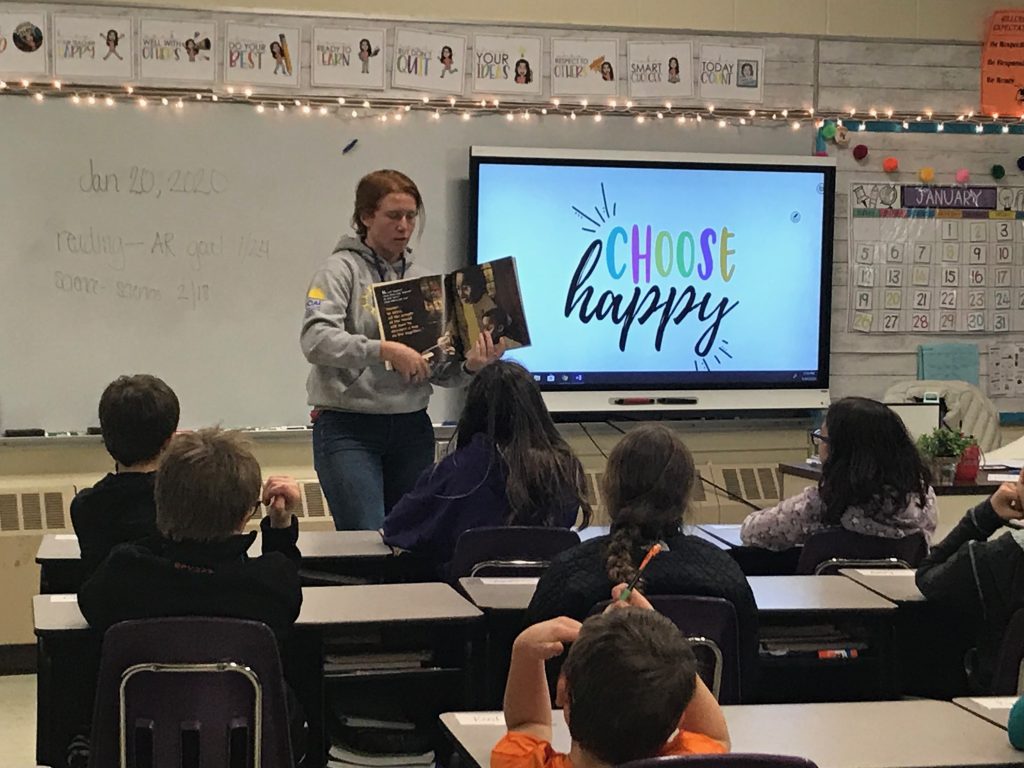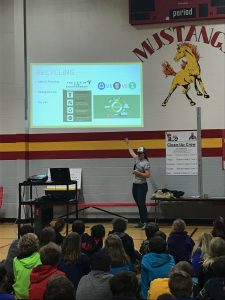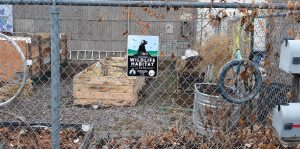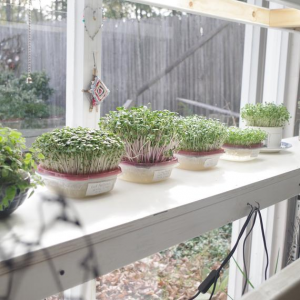By Katie Simpson Johnson
Last week, I had the opportunity to speak with students in Butte about recycling. Fellow Energy Corps member, Maryssa Fenwick, and I gave the presentation to a gymnasium full with kids. Our goal was to keep these young kids interested and engaged long enough to teach them about the “Four R’s of the Environment,” what can be recycled, and how to be an environmental steward. Once the promise of a lollipop and a sweet sticker for participation grabbed their attention, I could see the gears in their heads beginning to turn as they attempted to put the puzzle pieces of information together. Some were confused, raising their hands and asking why people litter, pollute and do harm to the environment. Others appeared empowered. When asked what they could do to make their world a better place, hands shot up into the air, and answers like, “pick up all the trash you see,” “make sure everyone recycles,” and “tell mom and dad to not make trash” were shouted out.
On the following Monday, I witnessed this process again as I had another opportunity to talk with young students about a different topic: Martin Luther King, Jr. As part of the National Day of Service, Energy Corps members across Montana went into schools to talk about MLK. As I read about him and I explained his legacy, looks of confusion and surprise were sprinkled amongst the indifference of students who had already heard his story before. One little boy asked me to explain again “why they killed him.” Feeling unqualified to analyze the complexities of our modern-day society with a five-year old, I directed his question towards his teacher; however, I could see his point: the way humans act sometimes, towards other humans, and towards our environment is confusing. As the students started to explain the ways in which they believed they could change the world, I saw large-scale, empowering ideas crop up as they had the week before.
At first glance, the question is ridiculous. Obviously, Martin Luther King, Jr. and recycling have nothing in common. However, upon a little more reflection, and through the lenses of my now semi-permanent sustainability goggles, both of these topics represent something more. Both social justice and solid waste recycling are complicated, necessary components of a sustainable society; as odd as it sounds, you really cannot have one without the other. As well, both of these issues get so much more complicated as we get older; they both show an injustice; they both dishearten us as we consider all of the history that got us to this point, and all that must be done to combat it. Yet, these young kids came up with simple solutions to our environmental crisis and to world peace in seconds flat. They remove the complexities, legalities, and history of the issues at hand, and simply address the issue itself.
Perhaps, the answer to this question is still absolutely nothing. Maybe the answer is everything. I think that is for everyone to decide in his or her own terms. For myself, I am leaving these past couple weeks feeling inspired, and a little bit better about the world we live in.









